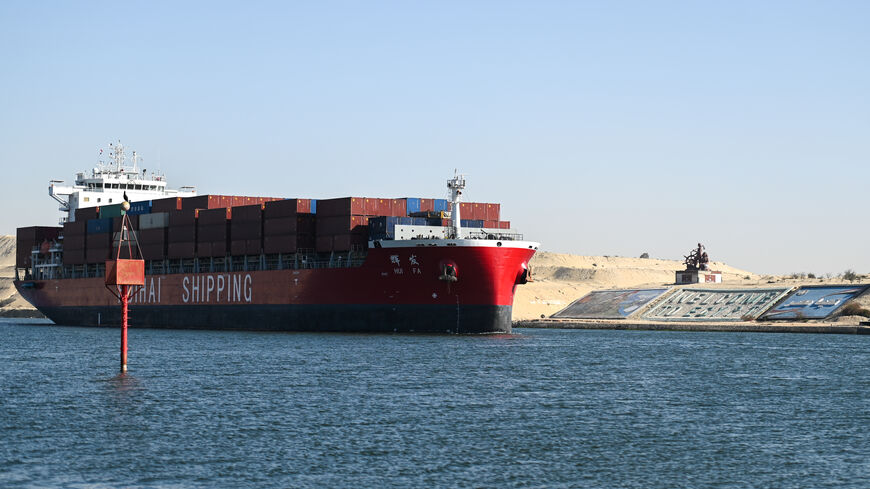Houthi attacks on Red Sea shipping wipe $2B off Suez Canal annual revenue
The Suez Canal Authority said revenue for fiscal year 2023/24 fell to $7.2 billion, down from $9.4 billion the preceding year.

Revenue registered by the Suez Canal for fiscal year 2023/24 fell by more than $2 billion, as attacks on commercial vessels in the Red Sea by Iran-backed Houthi rebels in Yemen continue to disrupt global trade and cause rerouting.
Yemen’s Houthis have been attacking commercial vessels traversing the Red Sea region since November 2023, calling the strikes a direct response to Israeli military operations in Gaza after Hamas' Oct. 7 attack on southern Israel.
Houthi militants have launched more than 70 attacks, including the sinking of two vessels, since November. On Monday, two ships came under Houthi missile and drone attack off the coast of Hudaydah, Yemen.
Many shippers have redirected vessels to avoid possible attack, diverting them around Africa via South Africa’s Cape of Good Hope — a more costly route that can take at least 10 days longer. This diversion not only increases transit times and freight costs, but also places additional strain on the already congested cape route, negatively affecting global supply chains.
The Suez Canal Authority said in a statement Thursday that revenue for fiscal year 2023/24 totaled $7.2 billion, down from $9.4 billion for FY 2022/23.
A spokesperson from the authority told Al-Monitor that the number of vessels and tonnage passing through the Suez also dropped, from 25,911 to 20,148 ships and from 1.5 billion to 1 billion tons.
The new figures raise concerns about the impact of the declines on Egypt’s already fragile economy. Revenues from the Suez Canal account for roughly 2% of Egypt’s gross domestic product and are an important source of foreign currency.
On Wednesday, one of the world's largest container carriers, Denmark’s A. P. Moller-Maersk (Maersk), acknowledged the global extent of the Houthi disruption, saying, “The cascading impact of these disruptions extends beyond the primary affected routes, causing congestion at alternative routes and transhipment hubs essential for trade with Far East Asia, West Central Asia, and Europe.”
Maersk CEO Vincent Clerc said that his company will likely lack the capacity to fill the gaps caused by Houthi disruption and predicted “reduced ability for us to carry all the demand that there is.”
In June, members of the shipping industry called on the international community to take steps to protect shipping and deescalate the situation in the Red Sea region.







